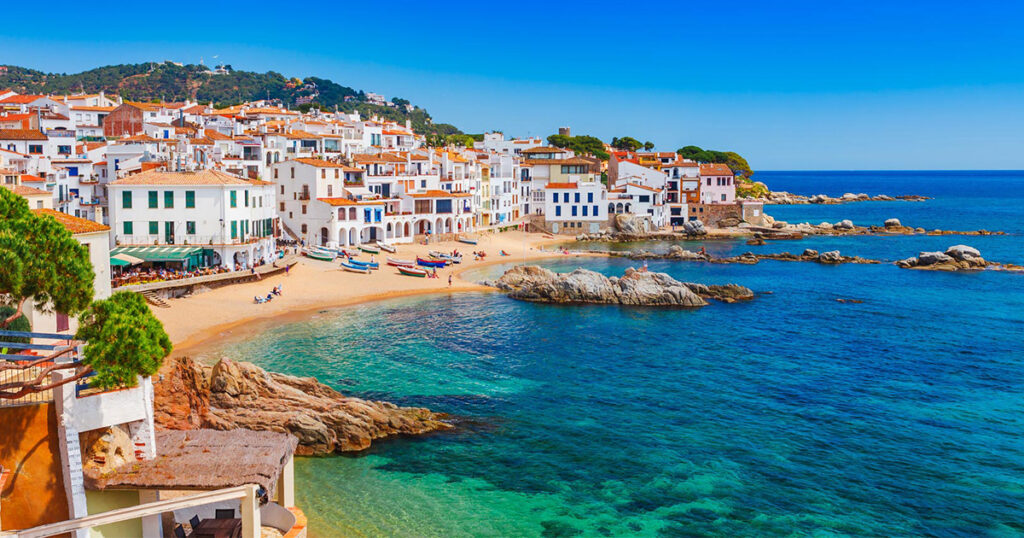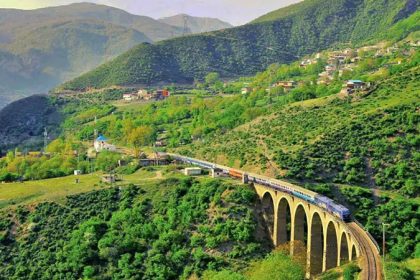If you are planning to travel to Spain, it is better to familiarize yourself with some points and cultural differences of this country in advance to avoid common mistakes when traveling there. With its rich history, amazing architecture, vibrant culture and delicious cuisine, Spain is a popular destination for tourists from all over the world. However, the cultural differences and specific habits of the Spanish people, from late dining hours to the Siesta tradition and beach rules, can all be challenging for travelers. Therefore, in this article, we examine 10 common mistakes that many tourists make when traveling to Spain and offer solutions to avoid them:
1. Don’t expect food to be served ahead of time!
The first common mistake when traveling to Spain is trying to eat outside of the locals’ schedule! Spaniards have special eating habits and you should not be surprised if they eat late. Lunch is usually served between 2 and 4 in the afternoon, and this is the main and most elaborate meal of the day. Dinner is also often eaten between 9 and 10 pm, but it should be much lighter than lunch. Most restaurants are not open until 1:00 PM for lunch and 8:00 PM for dinner. If you get hungry early, you can enjoy tapas, a popular Spanish appetizer.

2. Eat lunch in order to avoid hunger!
In Spain, it’s best to adapt your eating habits to the locals. As we said, lunch in this country is a big and detailed meal and dinner is usually light and simple. If you’re used to heavy dinners, you might struggle in Spain, as most restaurants don’t serve elaborate dinners! Therefore, it is better to include a detailed lunch in your plan and eat lighter meals such as salads or tapas for dinner.

Two important points about the eating habits of the Spanish people:
- In Spain, paella is considered a lunch dish, not for dinner. This dish is usually served at lunch time and at dinner time, more light dishes are preferred.
- Don’t skip the chocolate sauce! Churro is one of the popular Spanish foods that is served with thick hot chocolate. Unlike regular hot chocolate, this type is very thick and should not be drunk as a drink. It is better to use it as a sauce for churros.
3. Contrary to expectations, most Spaniards do not know English!
Many tourists think that Spanish people are fluent in English, but this is not the case. Spain has five official languages, which include Spanish (Castilian), Catalan, Basque, Galician, and Arani. Even in touristic areas, the English language level of locals may be much lower than expected. Therefore, it is recommended that you learn at least some basic Spanish before your trip so that you can communicate with the locals more easily. In the article “Teaching Spanish for Travel: Essential Phrases You Must Know” you can avoid some common mistakes when traveling to Spain.
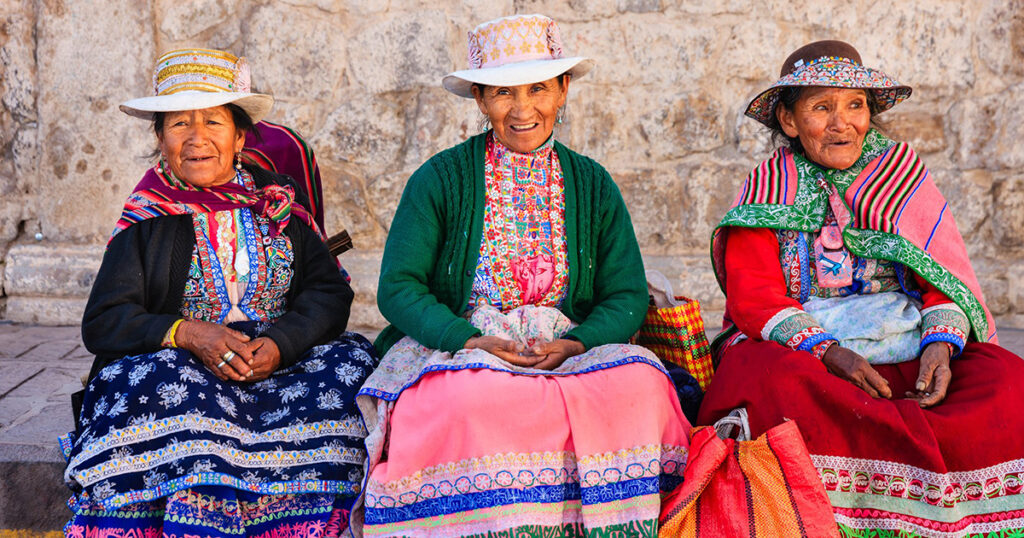
4. Do not take off your shirt anywhere except the beach!
In Spain, unlike some countries, such as the UK and Australia, taking off your shirt in public (such as streets and shops) is not accepted and may even be fined! This is only allowed on beaches, otherwise, it can lead to being denied entry or even paying a fine. Therefore, to avoid possible problems, it is better to always wear appropriate clothes and avoid walking shirtless in public places.
5. Take the flags by the sea seriously!
For a safe and enjoyable trip to the coast of Spain, pay attention to the colored flags that are installed along the coastline. Each color has a specific meaning that helps you stay safe:
Green: You are allowed to swim.
Yellow: swim with caution; Especially with children.
Red: Swimming is prohibited.
Orange: There is no lifeguard on the beach.
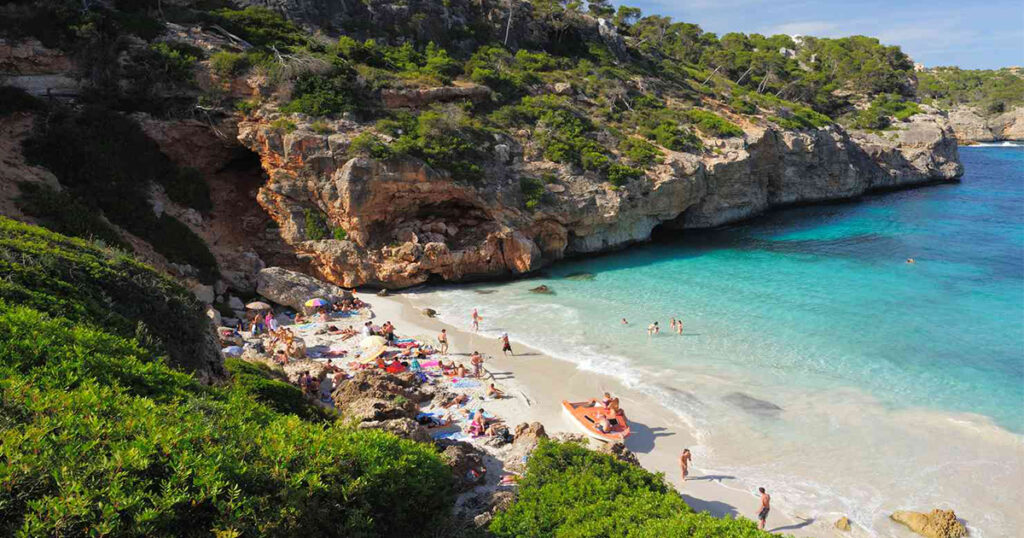
6. Don’t expect shops and restaurants to be open all day!
In most parts of Spain, especially small towns, people follow the tradition of sista (afternoon rest). As a result, many shops and restaurants close at 1 or 2 pm and don’t open until around 4 or 5 pm. If you plan to shop after lunch, you should know that most of the shops are closed until the afternoon. (Of course, there may be exceptions in big cities and tourist areas.)
Read more: Introducing the city of Madrid, Spain
7. Don’t expect any place to be open on Sunday!
Sundays are public holidays in Spain, so most shops, supermarkets, banks and post offices are closed. Of course, tourist attractions and museums are usually open, and some even offer free admission during certain hours. So be sure to keep this point in mind in your planning.
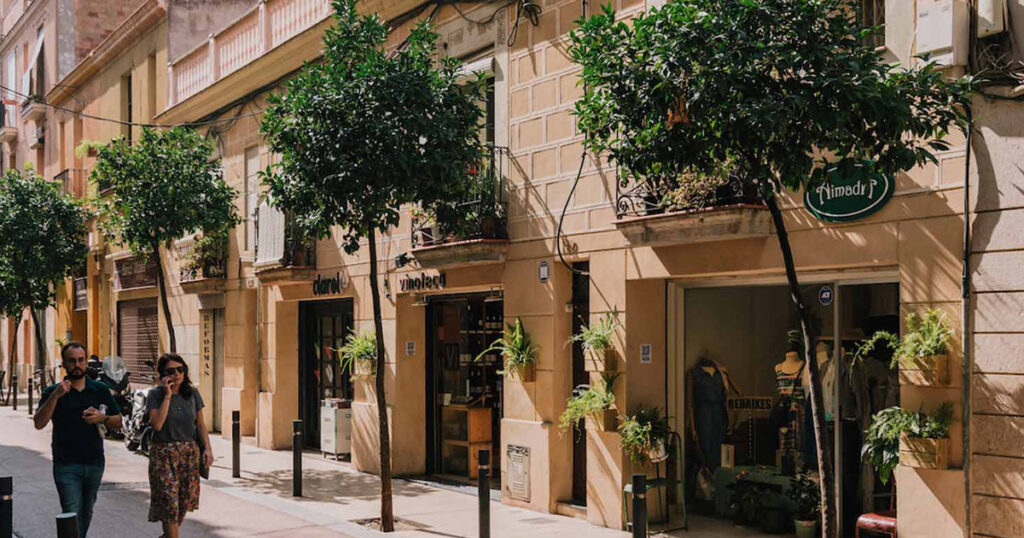
8. Book tickets in advance!
Some tourist attractions in Spain book up quickly, especially popular ones like the Alhambra in Granada and the Sagrada Familia in Barcelona. Therefore, it is better to book the tickets for these places a few days or even a few weeks in advance so that you don’t miss the opportunity to visit.

9. Don’t overdo tipping!
In Spain, tipping is usually optional, unlike in some countries such as the United States. Waiters have a fixed salary and there is no need to tip much. If you are satisfied with the service, a tip between 7 and 10 percent of the bill amount is sufficient.
10. Carry some cash!
Many taxis and small shops in Spain do not accept credit cards, so it’s best to have some cash and change with you to avoid problems when making purchases or paying the fare.
Final word:
Traveling to Spain can be a unique and unforgettable experience, as long as you avoid these 10 common mistakes in traveling to Spain. By being aware and paying attention to cultural differences and important points, you can enjoy all the attractions and beauties of Spain in the best way and make your trip a sweet and meaningful memory. To book tickets and hotels in Spain, you can contact our experts at Setare Vanak Airline Agency so that they can prepare your travel arrangements in the best way.
Copying of the contents of Setare Vanak Airline Agency is prohibited only by mentioning the source.
RCO NEWS




